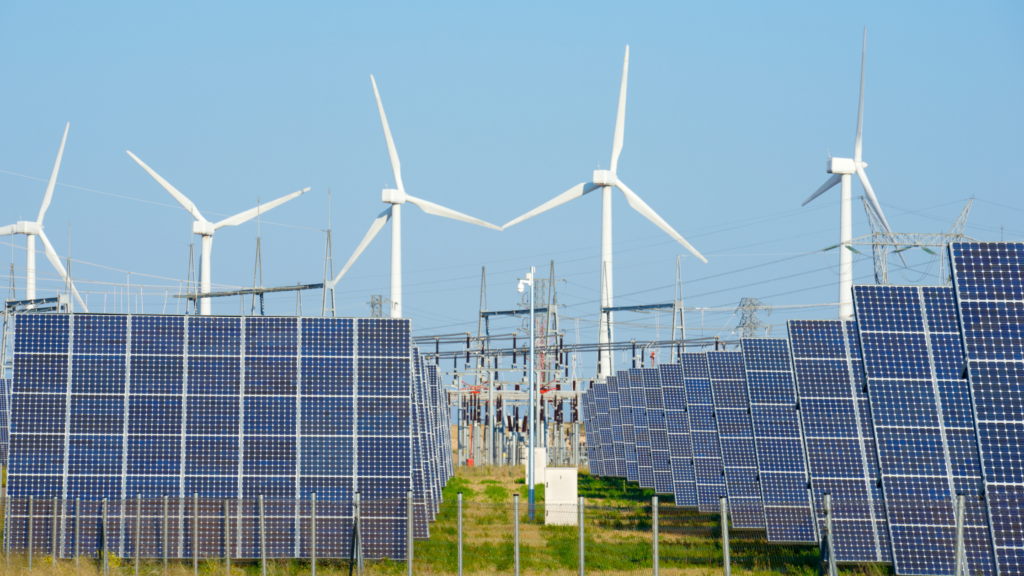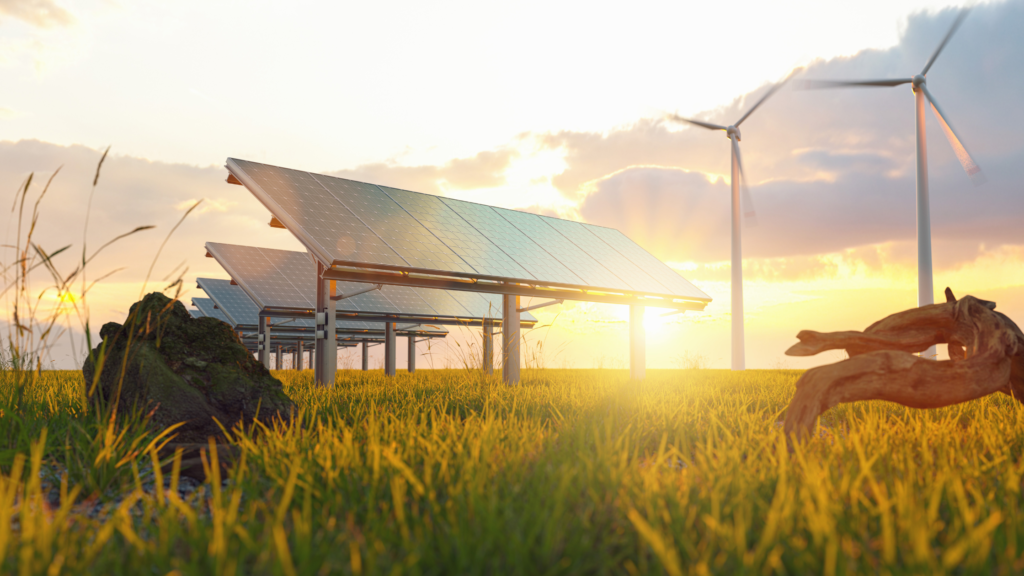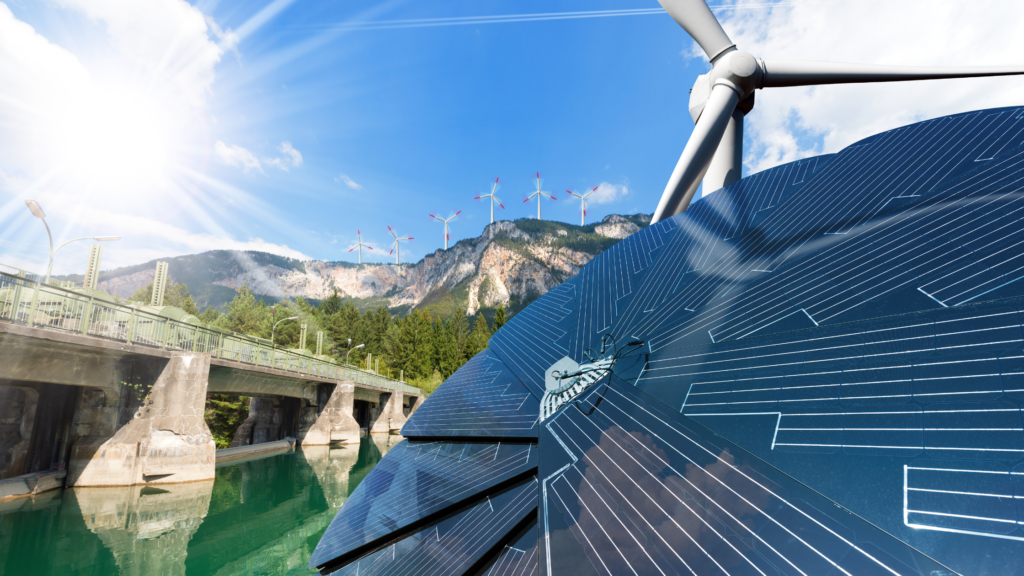The world is shifting towards renewable energy sources like solar, wind, geothermal, and hydropower due to climate change concerns, energy security needs, and cost reductions in renewable technologies. This growth offers unique opportunities for startups with innovative solutions to disrupt the energy landscape. However, securing investment in this dynamic field requires a well-defined strategy. Renewable energy investment is essential for sustainable growth and combating climate change. For startups, navigating this landscape can be challenging but rewarding. Bottom Billion Corporation (BBC) supports ventures promoting sustainability and economic development.
Understanding Renewable Energy Investment

What is Renewable Energy Investment?
Renewable energy investment refers to the allocation of capital into projects and technologies that generate energy from renewable sources such as solar, wind, geothermal, and hydropower. These investments aim to support the development, implementation, and expansion of clean energy solutions, reducing reliance on fossil fuels and mitigating the impacts of climate change. By funding renewable energy initiatives, investors contribute to environmental sustainability, enhance energy security, and capitalize on the growing demand for green energy.
The Importance of Renewable Energy Investment
Investing in renewable energy is essential for reducing greenhouse gas emissions and transitioning to a sustainable energy future. Renewable energy sources, such as solar, wind, and hydropower, provide clean alternatives to fossil fuels. For startups, investing in renewable energy not only contributes to environmental sustainability but also presents significant economic opportunities.
Market Trends and Opportunities
The renewable energy market is rapidly growing, driven by technological advancements, policy support, and increasing demand for clean energy. Startups can leverage these trends to identify lucrative investment opportunities. Key areas of growth include solar energy, wind power, energy storage, and smart grid technologies. Understanding these market dynamics is crucial for startups to position themselves strategically in the industry.
Investment Opportunities in Renewable Energy

The renewable energy sector is broad, and investment opportunities exist across various segments. Here’s a breakdown of some key areas attracting investor interest:
- Renewable Energy Generation: This includes companies developing and deploying solar, wind, geothermal, and hydropower technologies.
- Energy Storage: Energy storage solutions are crucial for integrating renewable energy into the grid and managing its intermittency. Startups developing innovative battery storage technologies and grid-scale energy storage solutions are attracting significant investment.
- Smart Grid Technologies: Smart grid technologies improve the efficiency and reliability of the electricity grid, facilitating the integration of renewable energy sources. Startups developing AI-powered grid management systems, smart meters, and demand-side management solutions are well-positioned for investment.
- Decentralized Energy: Decentralized energy solutions, such as rooftop solar and microgrids, are gaining traction. Startups developing innovative technologies and business models for distributed energy generation and management are attracting investor interest.
- Cleantech Manufacturing: Manufacturing of clean energy technologies, such as solar panels, wind turbines, and energy storage systems, presents another significant investment opportunity. Startups developing efficient and cost-effective manufacturing processes for cleantech components are well-positioned to attract investors.
Key Investment Strategies for Startups
- Securing Funding. One of the primary challenges for renewable energy startups is securing funding. Startups should explore various funding sources, including venture capital, angel investors, government grants, and crowdfunding. Developing a compelling business plan and pitch that highlights the startup’s unique value proposition, market potential, and sustainability impact is essential to attract investors.
- Building Strategic Partnerships. Partnerships are vital for renewable energy startups to scale their operations and expand their market reach. Collaborating with established companies, research institutions, and government agencies can provide startups with access to resources, expertise, and networks. These partnerships can also enhance credibility and open up new funding opportunities.
- Leveraging Technology and Innovation. Innovation is at the heart of the renewable energy sector. Startups should focus on developing and adopting cutting-edge technologies that improve efficiency, reduce costs, and enhance performance. Embracing digital solutions such as artificial intelligence, blockchain, and the Internet of Things (IoT) can optimize energy production, distribution, and consumption, driving competitive advantage.
- Managing Risks. Investing in renewable energy involves inherent risks, including technological, regulatory, and market risks. Startups must conduct thorough risk assessments and develop robust risk management strategies. Diversifying investments across different technologies and markets can mitigate risks and enhance resilience. Additionally, staying informed about policy changes and regulatory developments is crucial for compliance and risk mitigation.
Benefits of Renewable Energy Investment for Startups

Economic Growth and Job Creation
Investing in renewable energy drives economic growth and job creation. The renewable energy sector is labor-intensive, creating numerous employment opportunities across various skill levels. Startups can contribute to local economies by generating jobs and fostering economic development through their projects.
Environmental Sustainability
Renewable energy investments significantly reduce greenhouse gas emissions and environmental pollution. Startups that focus on clean energy solutions play a pivotal role in mitigating climate change and promoting environmental sustainability. These efforts align with global sustainability goals and contribute to a healthier planet.
Long-Term Financial Returns
Renewable energy investments offer attractive long-term financial returns. As technology costs continue to decline and efficiency improves, renewable energy projects become more economically viable. Startups that successfully navigate the investment landscape can achieve substantial financial gains while contributing to sustainable development.
Challenges and Solutions
Overcoming Initial Investment Hurdles
The initial capital requirement for renewable energy investments can be a significant barrier for startups. Solutions include leveraging public-private partnerships, securing government incentives, and exploring innovative financing models such as power purchase agreements (PPAs) and green bonds. These approaches can help startups overcome financial barriers and launch successful projects.
Navigating Regulatory Landscapes
Renewable energy startups must navigate complex regulatory landscapes that vary by region and country. Understanding local regulations, securing necessary permits, and ensuring compliance with environmental standards are essential steps. Engaging with policymakers and participating in industry associations can help startups stay informed and advocate for supportive policies.
Renewable energy investment strategies are crucial for startups aiming to drive sustainable growth and economic development. By securing funding, building strategic partnerships, leveraging technology, and managing risks, startups can navigate the renewable energy landscape successfully. These strategies align with Bottom Billion Corporation’s mission to promote sustainability and empower underserved communities. With a focus on innovation and resilience, renewable energy startups can contribute to a cleaner, more sustainable future.



